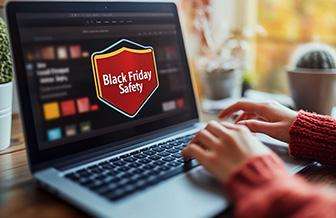4 Internet Dangers Your Kid Should Know About
By Marisa Heung
7 min read
Posted on Aug 30, 2021

As parents, it’s our job to protect our kids from harm—even ones that we can’t see. For National Cybersecurity Awareness Month, which is held in October each year, HONOLULU Family sat down with Angela Kaiwikuamo‘oho‘ihou, community and crime prevention specialist for the state Attorney General’s office, and Sgt. Chris Kim with CrimeStoppers Honolulu, a volunteer-run initiative that aids in creating a safer community through the solicitation of anonymous tips, to learn what common dangers kids face online, and what measures parents can take to protect them.
Zoom hackers
Hacking may be far from a new thing, but as many classrooms turn to remote learning, some hackers have started to target Zoom users, many of whom may not be familiar with the new platform, to cause disruption during online classes. While “zoombombing” won’t result in compromised accounts or computer viruses, they may expose your kid to inappropriate sounds or images. “Links for Zoom meetings can be shared,” says Sgt. Chris Kim. “If an email gets hacked or if the email is forwarded, anyone can join.”
Zoombombs can be as mildly annoying as blaring music in the middle of a lesson, or as unsettling as the hacker flashing the class or sharing pornographic images or videos. Either way, these disruptions are unwelcome and hinder your child’s learning. So, how do you protect yourself? First off, always make sure to keep an eye on your kid’s screen so you’ll be quick to respond if something is amiss. “Treat it like a stranger is in your classroom,” says Angela Kaiwikuamo‘oho‘ihou. “If you see something inappropriate or recognize someone in the classroom who shouldn’t be in there, then leave the room. The teacher can always call you back in.”
Video game predators
One of the amazing things about video games is that they can now be played with anyone in the world—even your best friends from school—right from your living room. But that also puts kids in danger of pedophiles who use them to meet children. “They pose as a kid, build a rapport with a kid and then groom them,” says Sgt. Chris Kim. “Once they have their trust, they’ll try to coerce them into sending inappropriate photos to them.” Video game predators might make a connection with a child by swooping in to help them beat a difficult level or giving them in-game gifts—both of which seem innocent enough, but, says Kaiwikuamo‘oho‘ihou, should raise red flags for parents. “Use the parental controls, and only let them play with people they already know. If your child makes a new online friend they’ve never met before, be very cautious.”
Cyberbullying
Trash-talking is a common thing in video games, but that playful competitive banter can easily turn into cyberbullying for kids who haven’t learned how to deal with their negative emotions in a healthy way. Teach your kids to have a healthy balance of screen time and off-screen time, and teach them how to manage their anger and aggression so they don’t end up using video games, and the player on the other end of the screen, as their outlet.
Social media stalkers
Social media is a great way to stay connected to friends and family, especially now, but does come with its own risks. Once your child starts becoming active on Instagram or Snapchat, make sure to talk with them about what’s OK and not OK to do, as well as the dangers of social media. By posting photos with too much personal detail, like in front of their school or house, kids unknowingly make themselves easy targets for predators. Direct messages also give strangers an opening to connect. “Social media can be fun, but should be under parents’ supervision,” says Sgt. Kim. “We highly recommend making your kid’s profile private.” Make sure your kid shares their password with you, something he does with his own daughter, which allows him to keep an eye out for her safety online.
The bottom line: Talk to your kids
Above all else, the best way to keep your kid safe is to be involved in their lives. Stay connected, make an effort to talk and always let them know that they can turn to you, no matter what. Many kids who end up falling victim to predators do so because they feel neglected or disconnected from their parents. Predators take advantage of that, showering them with the attention they can’t get at home.
Whether the danger is online or in your neighborhood, it’s important that kids know they aren’t helpless. Student CrimeStoppers Honolulu, which Kaiwikuamo‘oho‘ihou and Sgt. Kim are both actively involved in, was created specifically to empower youth to help their friends or fellow students dealing with sex assault, bullying, self-harm and more. Available to every public and private school in Hawai‘i, students can send anonymous tips via the CrimeStoppers app or the CrimeStoppers website, which are then investigated by dedicated Honolulu Police staff. Today, Student Crimestoppers routinely receives tips from more than 57 schools across the island. If you’d like your keiki’s school to be a part of the Student CrimeStoppers program, have the school contact CrimeStoppers Honolulu for an in-person or virtual presentation to students.
Was this helpful?
Thank you for the feedback








